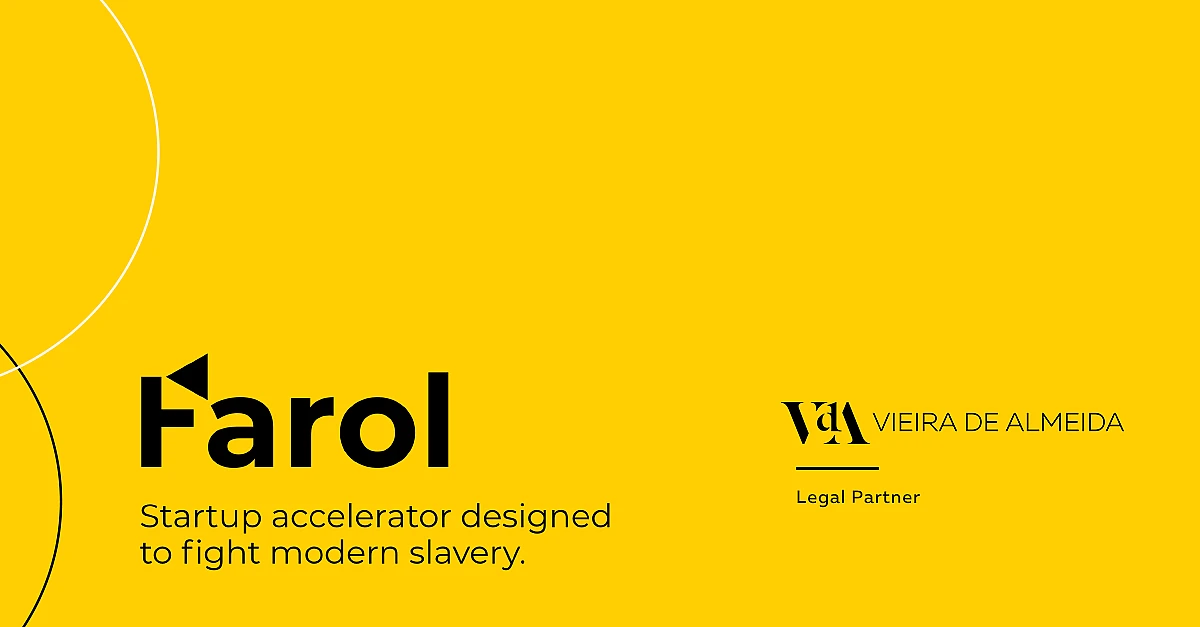VdA supports FAROL, the first accelerator of its kind designed to identify and accelerate tech-focused solutions that have the potential to mitigate and reduce slavery and forced labour within supply chains. Powered by a collaboration of Portuguese and Spanish - Partnerships For Humanity e Fundación Española Por Los Derechos Humanos -, based organisations working at the intersection of human rights and innovation as an answer to Human Rights questions, the project is looking for startups and ideas which present and develop tech soclutions to answer current crisis.
FAROL is actively scouting 15 tech focused projects globally with a goal of supporting 5 startups from developing countries to join a six-month accelerator. The program is open to both pre-seed and seed to series-A startups as well as projects from NGO’s and grassroots organisations working on blockchain, Artificial Intelligence, machine learning, natural language processing, image recognition, big data, geolocation and big data technologies.
FAROL is a UN global compact participating project. Contributors to the program include human rights organisation Walk Free, The Fair Cobalt Alliance, survivor of modern slavery and TED speaker Nasreen Sheikh.
FAROL is programmed in partnership with Lisbon based consultant Beta-i and proudly supported by the Portuguese government through the Portugal Inovação Social initiative with European funding.
The program will be divided into two tracks to support both young purpose-driven tech startups and projects from tech-savvy NGO’s who may be in the early stages of product development as well as startups with a functioning product and existent clients who are aiming to add reducing modern slavery to their goals.
Through the accelerator program, startups will be supported via mentoring sessions and a rich special speaker program delivered by experts from leading organisations, brands and individuals. Applications can be made through the FAROL website until August 31st.
The International Labour Organisation estimates that there are approximately 40.3 million people living in some form of slavery today. Globally, more than half are in forced labour, which means working against their will and under intimidation or coercion. Women and girls comprise 71% of all modern slavery victims and children account for 10 million of those worldwide. Due to its universal illegality, it is a largely hidden practice, but more people are enslaved today than at any other time in history; working at the bottom of global supply chains within agriculture, mining, fishing, assembly lines, construction, food processing, manufacturing and domestic services.
